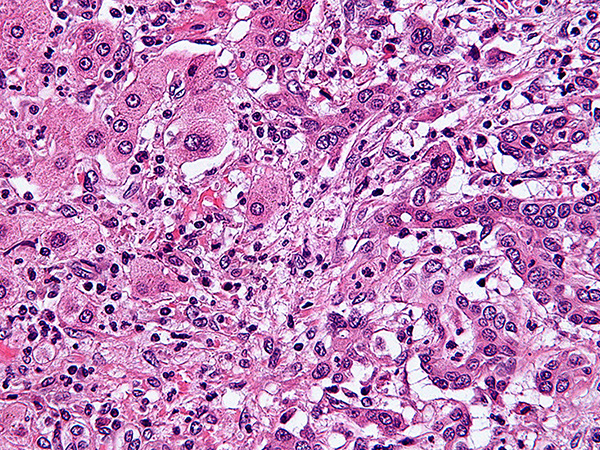A Targeted Therapy for Bile Duct Cancer
The FDA has granted accelerated approval to a molecularly targeted therapeutic along with a companion diagnostic to treat certain patients with cholangiocarcinoma.
The U.S. Food and Drug Administration (FDA) has granted accelerated approval to the targeted therapeutic infigratinib (Truseltiq) for certain adults with previously treated advanced cholangiocarcinoma—a cancer of the bile duct.

The approval is for patients with cancers that test positive for fibroblast growth factor receptor 2 (FGFR2) fusion or other rearrangement. The agency also approved the companion diagnostic FoundationOne® CDx to help identify patients whose tumors contain these genetic mutations.
Infigratinib is a kinase inhibitor that blocks the activity of FGFRs, including FGFR2, which help drive the growth of cancer.
The data to demonstrate efficacy was demonstrated in a multicenter, open-label, single-arm clinical trial. In this trial, 108 patients with advanced cholangiocarcinoma containing an FGFR2 fusion were treated with infigratinib, and 23 percent of patients responded to the therapy.
Cholangiocarcinoma is cancer that forms in bile ducts. There are three types of cholangiocarcinoma, categorized according to the location of the cancer. Bile duct cancer is rare and occurs mostly in people over age 50.
The FDA rendered this accelerated approval on May 28, 2021. Accelerated approval means continued approval may be contingent upon a confirmatory trial.
